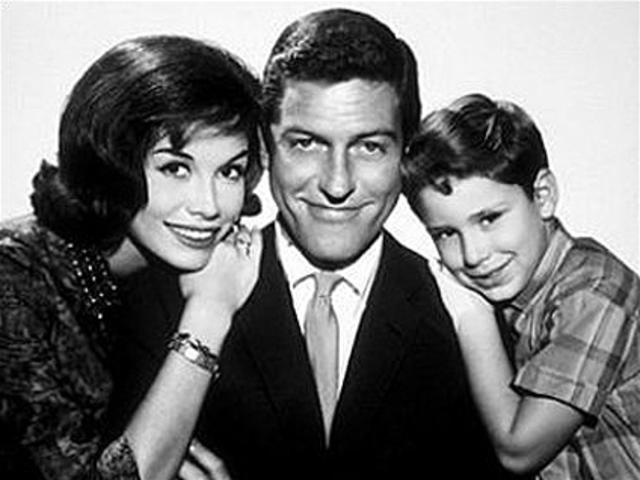A Historic Moment for Women
On November 7, 2020, in a historic moment for women, Kamala Harris was elected as Vice President of the United States of America. This is especially impactful because (white) women were only granted the right to vote in this country 100 years ago, after over half a century of struggle. To commemorate this momentous occasion, my mom and I watched the film Suffragette, which paints a very bleak and sobering picture of the fight that women faced in England near the turn of the century. It sheds a light on the many ways in which women were kept from having any control over their lives and bodies, including abusive work and domestic relationships, sexual assault, and being denied access to their children.
These injustices prevail to this day all over the world. At the end of the film, before the credits, there was a list of countries and the year they gave women the right to vote. The most recent was Saudi Arabia, as of 2015. 2015. And there were plenty that didn’t show up on the list until the 1970s. I was shell-shocked.

The Fight for Equality
The lengths men will go to maintain their power and control over women are mind-boggling to me. They use the same suppression tactics today as they used a hundred years ago. Men convince women that they’re there to protect and provide for them, and then turn on them at the slightest hint of dissent. This has led to such phenomena as 60% of single mothers in the US living below the poverty line.
Spoiler alert. In the film, the protagonist joins the suffragette movement, much to the chagrin of her husband. After getting arrested for a second time, he bars her from the house and her young child. She visits when she can, but when she comes to wish him happy birthday, she learns he’s been given up for adoption. She begs her husband not to let this happen, but he is ripped from her arms and taken away. Her husband’s excuse for this cruelty is that he couldn’t care for the child on his own, even though he was the one who forced her out in the first place.
In my family we have talked about the male of a species’ propensity to eat their young. This primal urge seems to be present among humans, as well. So many men have not learned the true meaning of care, instead exerting ownership and authoritarianism over their children. They do the bare minimum and expect a reward. Meanwhile, mothers are picking up the slack right and left and receiving no credit whatsoever. It is time for that to change.
Women in the Workforce
Women have been making steady progress in the workplace since the 1970s, gaining traction and rising to positions of influence and power. Yet white women still make 82 cents to a white man’s dollar while black women only make 63. To make matters worse, since the pandemic began, women have been leaving the workforce at four times the rate of men, namely to care for their children. In July, the Washington Post said, “Coronavirus child-care crisis will set women back a generation.” This is devastating. But we have seen it happen before.
During World War II, American women joined the workforce in droves while the men were away in the war. But as soon as it was over they were dragged back into the home and reinstated in their “proper place.” It took women nearly three decades to regain the same kind of presence in the workforce. But even then they were in subordinate positions and subjected to all kinds of gender-based harassment, sexualized or not.
An American Icon
The Mary Tyler Moore Show stepped on the scene in 1970 and was quite radical for its time. It highlighted the life of a single, working woman making her way in a man’s world, while also navigating her female friendships. She wore pantsuits, and decorated her desk in the WJM-TV newsroom with flowers. She became a kind of idol for American women, who suddenly saw the possibility of having a career while also being messy, complicated humans. Mary Tyler Moore and her on-screen counterpart, Mary Richards, paved the way for such women as Katie Couric, Rosie O’Donnell, and Oprah, among countless others.
The only problem with this show is that it was still very much of its day. The men ruled the roost and gave Mary no credit for picking up the pieces when they failed. They would condescend to her, then turn around and ask her for favors because she was so “reliable.” Ultimately, Mary was a push-over, and she often did more than her share with no reward.
Mary’s coworkers also lusted after her. In “Mary’s Three Husbands,” her three male coworkers fantasize about what it would be like to marry Mary. All of their visions involve her serving them in some way, exposing how much misogyny lay beneath the surface of this seemingly-feminist show. The impact of the Mary Tyler Moore Show is undeniable, but the bar had been set pretty low.
The Nuclear Family
The fact that Mary Richards was single and had never been married is another aspect of the show that deserves to be dissected. Originally, the show’s creators wanted her to be recently divorced, but the producers knew that people still associated Mary Tyler Moore with the character of Laura Petrie on The Dick Van Dyke Show. They worried that audiences would think she had divorced Rob Petrie and left behind their son Richie. That would be far too controversial.

It is still difficult for the general population to handle a woman divorcing her husband. People feel compelled to choose a side when faced with a divorce within their inner circle, and it is not often in the woman’s favor, no matter how much she has shown up for them. They blame her for breaking up the family and taking something away from the man. He has to grow up and face his demons. He has to fill the hole that was previously occupied by his wife and start showing up and showing care. If or when he doesn’t, the people around him suffer and scramble to make ends meet.
What I see as the root cause of all this is the idealized image of the nuclear family with the house in the suburbs, the white picket fence and the dog running in the yard. This has been upheld as the pinnacle of American Life, but these days it is nearly unattainable, and it has been for thousands of people for decades. Economically disadvantaged people and people of color, especially, have been denied this dream. Lorraine Hansberry tackles this tragedy head-on in her 1959 play, A Raisin in the Sun.
A Dream Deferred

The play follows the Younger family as they deal with the death of the family patriarch and wait in anticipation for his life insurance check which could help lift them out of poverty and transport them to a whole new life. The family matriarch, Lena, wants to use the money to buy the intergenerational family a new home in a nicer (white) neighborhood, while her son, Walter Lee, wants to invest it in a liquor store. He and his wife, Ruth, have a son and unbeknownst to him, she is pregnant with their second child. His younger sister, Beneatha, is in college and wants to use the money to fund her education.
Their dreams crash and collide as they grapple with how they can all find fulfillment and achieve the American Dream. But as the new patriarch, Walter Lee assumes authority and takes matters into his own hands. Spoiler alert. He entrusts the family’s money with a “friend,” who takes off with everything they had been pinning their hopes on. The family is crushed, but Lena urges them to lift up their chins and press on, despite the adversity and struggle ahead of them.
The Way Forward
This is what women do. We keep moving and finding a way through, no matter what. We have learned to be resilient and our skin has gotten thicker through our many years of struggle. Women are by no means “the weaker sex.” We are not “overly emotional”; we are carrying the burden of the world on our shoulders and receiving no credit for it. We have been expected to be everything to everyone for far too long, and it is time for men to grow up and pick up the slack (and their own laundry).
The convenient slogan “boys will be boys” has no place in this world any longer. People like Donald T**** are on their way out. It is time to make room for the Kamala Harrises of the world and let them take the reins for awhile. I guarantee you the world will change for the better as women occupy more leadership positions, and I fully expect to see a female POTUS in my lifetime. This is only one historic moment for women.








One Comment
Comments are closed.